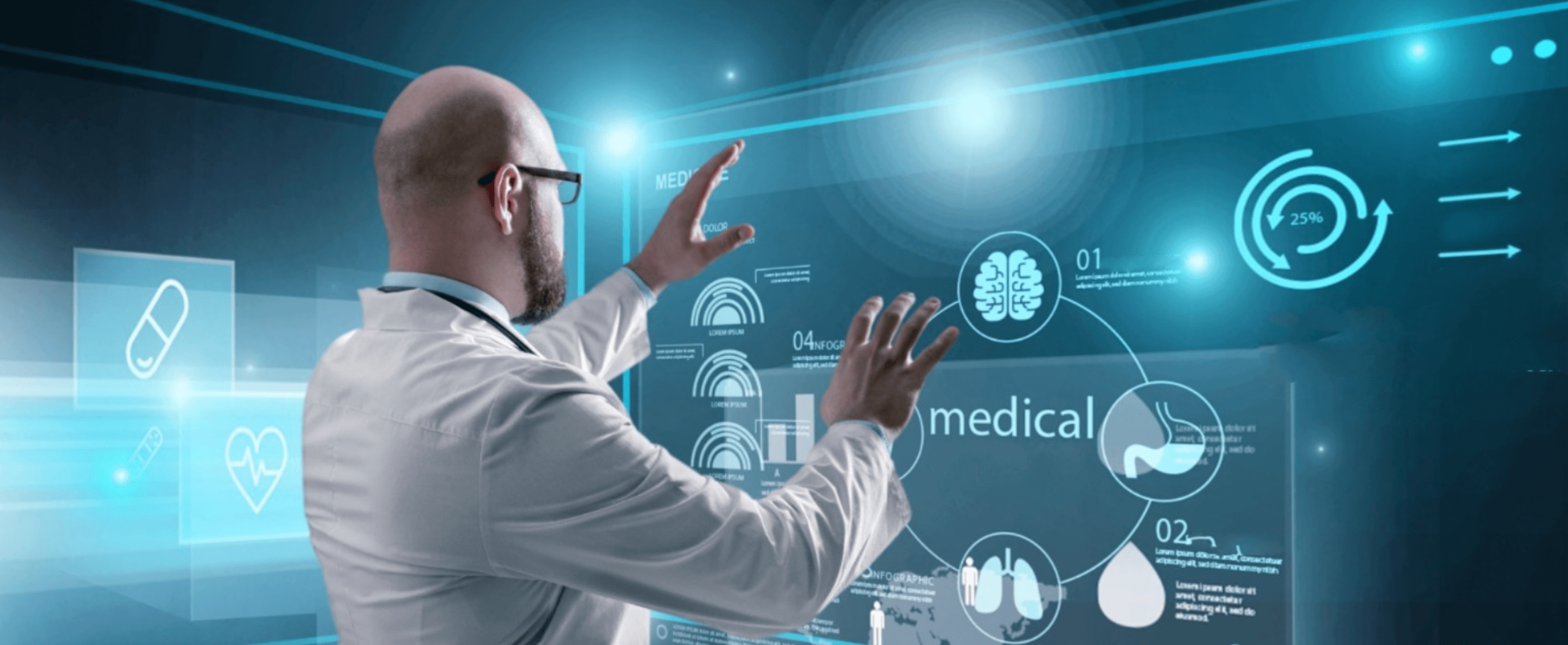Comments
- No comments found

Artificial intelligence (AI) is enhancing the ability of healthcare professionals to better treat patients.
Even though the term ‘artificial intelligence’ goes back to the 50s, it has gained more popularity in more recent years – all thanks to innovative technology and the power of advanced algorithms.
The technology that mimics humans and their intelligence has allowed us to simplify many processes, measure solutions, and produce multiple efficient technological solutions.
What makes artificial intelligence (AI) so powerful, is that it can be used for different purposes, sometimes, outperforming the abilities of a human. That’s why the modern economy is open to utilizing this technology in many sectors, including the healthcare industry.

AI or machine learning (ML) in healthcare describes special algorithms or cognitive technologies found in the medical scene. In other words, the healthcare industry uses AI technology in machines or computers to learn, think and make decisions, similarly to humans.
Many believe that machine learning has the full potential to reduce operational costs and provide automated insights or data to healthcare professionals. At the moment, AI applications are used to deliver prescriptions, providing people with custom reminders about taking their medicine, and recommendations regarding specific exercises or medical advice.
One of the biggest goals for artificial intelligence in healthcare is to revolutionize the industry and help people stay healthy without needing to see an actual doctor every time they feel unwell. Some of us are already aware of the Internet of Things (IoT), which includes the network of all internet-connected devices, such as biometric scanners, smartphones, and various factory equipment.
There’s also a fairly new, separate term for medical applications, and it’s called the Internet of Medical Things (IoMT). Such applications are already helping many people in the healthcare industry, increasing the chances for healthcare players to understand their patients better. In this scenario, AI assists humans in providing feedback more efficiently and helping with day-to-day tasks.
Scientists have already enabled AI tools for testing several kinds of cancer. Such aid screening tests have been used in the industry for more than 20 years, but today’s technology allows the industry to evolve even more quickly. Today, artificial intelligence is able to identify ill individuals, helping doctors take a more comprehensive approach by enabling AI-powered testing and disease management.
For instance, doctors state that some mammograms show false results, and AI is now solving this issue by reviewing the test results thirty times faster than humans; this way, in some cases, reducing the need for biopsies. On top of that, scientists have utilized a deep learning algorithm that is now trained to evaluate MRI scans and detect gene mutations in brain tumors. Such AI programs are essential when it comes to long-term treatment.
Having AI implemented into your healthcare ecosystem brings a lot of perks. Not only does artificial intelligence help detect diseases, but it’s also a huge help for automating various tasks, such as analyzing big sets of data to deliver healthcare more efficiently. AI is able to review multiple data points and provide concluded analyses quicker than an average human.
That’s why such a technology discovers the patient’s areas and provides insights that help their health to improve. That said, it’s also no secret that a huge portion of healthcare costs are also due to the need to maintain administrative tasks. AI is now used to lower these costs by automating unpaid bill monitoring, insurance pre-authorization, and maintaining medical records.

Another factor that’s been an issue in recent years, especially due to the global pandemic, is maintaining effective cybersecurity. Criminals strive to steal online records and patient data for their benefit, which leads us to have sky-high numbers of cases of medical identity theft. Cybersecurity specialists argue that the solution to this problem is remote identity verification. By verifying patients’ identities, the healthcare industry prevents identity-related fraud and ensures that the patient seeking medical help online is real.
Such automated AI-powered ID verification tools use deep learning technology to scan the identity document and review the person who needs access to healthcare services. The document and the person’s selfie are then analyzed and checked by the software to ensure that no stolen identities or fake profiles gain access to medical services.
Being able to assess health and identify potential health risks through technology is an innovative approach that has already proved its benefits in the healthcare sector. Artificial intelligence can be used for multiple administrative tasks to save money and ease the workload. This technology is vital for testing or detecting diseases more efficiently. It also comes in handy when it comes to security and preventing medical identity theft.
Leave your comments
Post comment as a guest